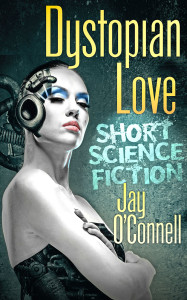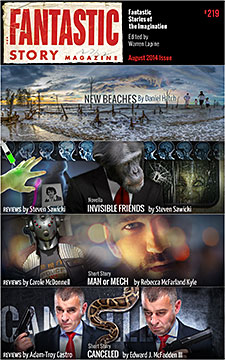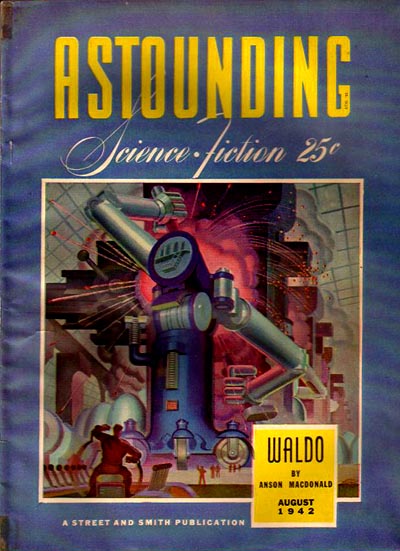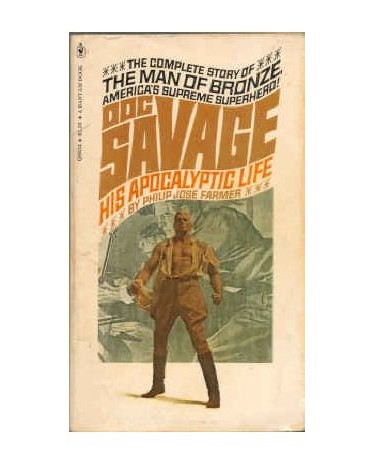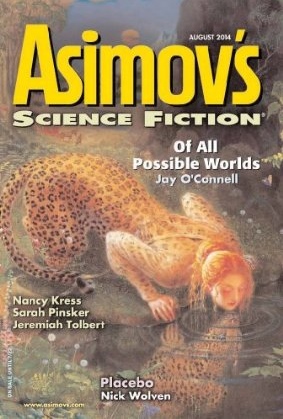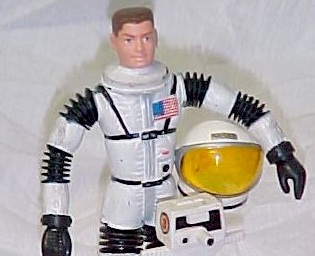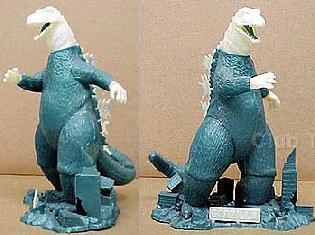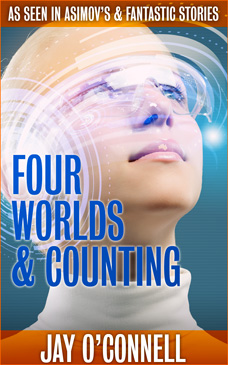
So I’ve had an amazing streak over the last few years, selling a bunch of shorts and a novella to Asimov’s, a magazine I’ve been wanting to be in for twenty years, as well as a sale to F&SF, Interzone, and other markets, but truth be told the streak started with my sale to Warren Lapine’s 2012 Fantastic Stories anthology.
My first sale in almost twenty years.
I was delighted to find myself in an anthology with the likes of Harlan Ellison, Mike Resnick, Barry Longyear, and a bunch of other writers I recognized from Year’s Best Anthologies over the years. That publication got me on my feet again.
After selling him the story, Warren approached me with the notion of doing something on the web with him, genre-book wise. He’d published Realms of Fantasy for a year or so towards the end of its run, and I’d done a website and eventually the page layout and cover / interior design for the magazine.
I turned him down at first, wanting to focus on the writing, unsure if I really wanted to be involved with web design and development anymore. My consulting experiences in independent publishing finally pushed me over the edge, and I agreed to help him with the new Fantastic Stories Magazine / Book site.
This time around we have new models for how web-based genre fiction is done. Clarkesworld, Lightspeed, Strange Horizons, Daily Science Fiction, and dozens of kickstarter financed anthologies have blazed new trails in the genre, garnering a good chunk of the Hugo and Nebula awards over the last few years. The days when all validation for a short genre author was intrinsically bound to paper have passed.
Analog, Asimov’s, F&SF, soldier on with great stories by great authors, both new and established; the Years Best anthologies are still a vital part of the genre as well, but one can feel the center slowly shifting. Online is coming on strong. Newstand distribution becomes ever more problematical.
Short fiction is a strange thing; in a world of on-demand video and super-fat, endless novel series, it seems odd that it continues to exist in any form whatsoever. In the end, I’m glad people still want to read it; paper or ebook, traditionally published or indy-pubbed, there’s a huge world of readers out there, dozens of marketplaces, thousands of new voices. How will we make sense of it all? How do we separate the wheat from the chaff? I’m no editor, thankfully. That’s not my job.
I’m a writer, again, enjoying every minute of it, and it’s my goal to reach readers, and to make money doing so, so I can do it with all of my time, By Any Means Necessary. Which brings us to the point of this post, this anthology of my first three Asimov’s stories and my career reviving Fantastic Stories 2012 sale, which I’m selling at Fantastic Stories. (My novella, Of All Possible Worlds is not part of this antho, as it is still on the stands here and there, where the magazine was distributed.)
Four Worlds is on sale at Amazon under my own name, and feel free to buy it from them for your Kindle or Kindle Reader Ap on your smartphone, iPad, or Android device. But the links here are to the same file at Fantastic.
Here’s how that works.
Pay with a credit card or Pay Pal, and you’ll be emailed a download link, good for a day.
Download the zipped archive with both the .mobi (kindle) and .epub (everything else) file.
Email that file to your device, or drag it over a cable, and there you go; you’ve just supported an independent on-line bookstore, and you’ve given me a higher royalty rate than Amazon, at the same time.
What’s the catch? Well, if you’ve never bought an independent book or moved one of your own documents onto your ereader, it will take you a few minutes to figure out how to do this. Every device manufacturer wants to keep you in their walled garden, their market vertical, but, every device supports reading indy books and personal documents, too. It takes five minutes the first time, though. They figure that’s enough to prevent most people from ever even trying to buy from anyone else.
Prove them wrong. Support local booksellers; support authors; support magazines; support indy on-line marketplaces.
My cheerfully exasperated support document which points to how to read indy books on a variety of devices can be read here.
And read my stories, even if you couldn’t find them on stands!
